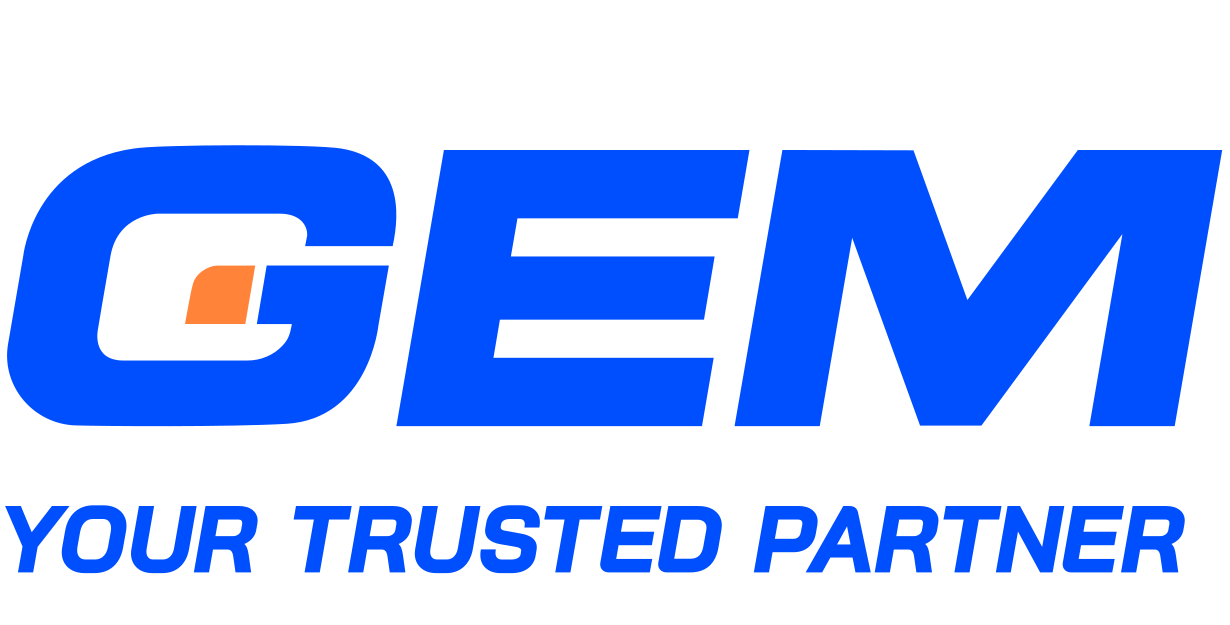Contents
Customer Relationship Management (CRM) solutions have become powerful tools for companies in the telecommunication industry. They transform the way businesses operate and handle the rapidly growing number of requests.
In a crowded market with increasing competition, offering better, more customer-centric service by leveraging new technologies is the priority of telecommunication companies. One of the prominent solutions to help them realize this goal is CRM – which stands for Customer Relationship Management. In this article, we explain how this approach effectively addresses the industry’s current challenges, what qualities make up an ideal CRM system, and provide a list of 10 highly-recommended CRM choices for your telecommunication businesses.
What challenges is the telecommunication industry facing?
The Telecommunication industry is dealing with exponential growth in users and connections. GSMA Intelligence projects that by 2025, there will be 8.6 billion mobile connections globally. More users expect exceptional service quality – fast connection with higher bandwidth to perform actions across multiple media platforms. Apart from higher demands from users, the industry’s competitive nature forces companies to face various challenges in their development process.

The need for an effective data management strategy
Telecommunication companies need a well-structured data strategy to handle massive data volumes and heavy workflow. Segmenting data effectively and avoiding redundancy – meaning the same data is stored in more than one place – is crucial in helping companies gain meaningful insights and leverage market opportunities.
Insufficient customer outreach and low conversion rate
Outdated approaches to customer outreach fall short of expectations and lead to low conversion rates. The telecommunication market is enormous – failing to deliver a satisfactory and personalized experience costs businesses a significant number of potential users.
High operational costs with limited efficiency
The management of both back-end operations and customers can be resource-extensive. Companies using old, legacy tools can often experience disruption and delays as the workload increases. Therefore, a software solution fueled by emerging technologies is needed to drive efficiency and reduce costs.
Insufficient technological expertise
Various telecommunication businesses face confusion and hesitation when applying new technologies and leveraging their benefits. The in-house team’s lack of solid technological expertise can hinder the shift towards innovative solutions.
The abovementioned challenges hinder companies from maintaining their position in a highly competitive industry. Therefore, seeking an innovative approach to handling processes is crucial – this is where CRM steps in.
How CRM solutions assist telecommunication businesses
With CRM, telecommunication companies can seamlessly cater to their subscribers and streamline their workflow. There are various aspects in the telecommunication domain that can benefit from a well-structured CRM solution.
Contact management
Contact management is considered the most critical advantage of applying CRM in telecommunication. Relationships directly inform the companies about their customers’ demands. The majority of businesses consider improving customer-business relationships and strengthening customer loyalty. Contact management becomes a crucial target.
According to 2019 statistics by Software Advice, 94% of CRM users request strong contact management functionalities.

The question emerges: how does a CRM solution answer this need?
First, since CRM provides a centralized solution to storing user data and their historical activities and requests, the process of personalizing their experience is guided ad based on reliable, real-time statistics. CRM allows data to be categorized, thus helping businesses create focused lists and determine potential spaces for sales growth. These features are significant for sales and marketing departments, creating successful campaigns and monitoring the sales process.
Second, with its smart reminder features, CRM is beneficial in improving customer retention. It keeps telecommunication staff from missing appointments reminds them about sending follow-up emails or reaching out to old customers. A report issued by Frederick Reichheld of Bain & Company claims that maintaining an existing customer is 6 – 7 times cheaper than acquiring new ones.
Third, CRM can help salespeople seek and nurture potential leads. Agents can follow and monitor the progress in sales pipelines to turn prospects into clients and even achieve up-selling or cross-selling deals. As a result, the companies can reach the targets and enlarge top-of-the-funnel opportunities.
Better management and distribution of queries
CRM helps companies navigate when dealing with any queries and transactions. It automates various mundane tasks such as reviewing, singling out queries, deciding the right flow of queries, and escalating deals/orders.
Conflict management
Managing conflicts means dealing with customer complaints, demanding both speed and thoughtfulness. A CRM solution facilitates a structured conflict management system that creates and processes each case guided. Companies will have the necessary information about the case – the involved parties, case description, and dispute history (if any). As a result, they can quickly identify the person in charge and the process needed to reach out and resolve the issue.
Despite the apparent benefits of employing CRM solutions, not all CRM systems will be a good fit. There are specific criteria that leaders must consider to ensure the system is worth the investment.
What constitutes an exemplary CRM system?
The following four features are crucial to ensure a CRM solution’s deployability: Easy integration, Customizability and upgradability, Scalability, and Actionable Insights and customer data.
Easy integration
A telecommunication company’s data and processes are located in different support systems. Therefore, proper and seamless integration is a priority when considering which CRM solution to adapt. Difficulties in integration may cause projects to be delayed and increase costs.
Customizability and upgradability
CRM should be easily customized and upgraded to meet specific business needs. Features such as system extensibility (including the database, business logic, and the user interface) and easy end-user configuration are crucial elements that define the excellence of a CRM solution.
Scalability
Scalability addresses the future needs of the business when it continues to grow. A CRM system must be scalable and sustainable – meaning it must grow with the increasing volume of inquiries, orders, deals, and other relevant information. The goal is to add new users and data and provide consistent support across interaction channels. Additionally, it must be capable of managing front-end and back-end processes in a unified system.
Actionable insights and customer data
Agents need more than data – they need organized data that yields insights and guide their subsequent actions. A CRM displays business processes and information in a structured manner to reveal meaningful patterns and help companies optimize their interactions with customers. CRM also identifies any potential risks and issues to trigger necessary attention. Advanced analytics capabilities enable telecommunication businesses to proactively anticipate customer needs and provide satisfactory solutions. As a result, their success rate increases, and revenue is boosted.
Best 10 CRM options for Telecommunication businesses
We have compiled a list of 10 highly-regarded CRM solutions for the telecommunication industry with their associated advantages and disadvantages, based on reviews on TrustRadius:
Zoho CRM
Pros:
- Suitable for telecommunication companies of all sizes and even freelancers
- Providing major features such as Capture Leads from Twitter or Facebook, Case Management, and Accounting.
- Easy to use
Cons: Some customer reviews report technical issues (logged out in the middle of a session). Other users think more customization is needed.

Sugar Sell
Pros:
- Customizable and flexible
- Detailed and easy-to-access sales consoles
- Intuitive and robust user interface
Cons: The speed of user experience should be improved

Maximizer CRM
Pros:
- User-friendly interface with straightforward menus
- An affordable choice that won’t strain small businesses’ budgets
Cons:
- The mobile version has various bugs with limited functionality
- No refunds
- Difficulties in handling large data.
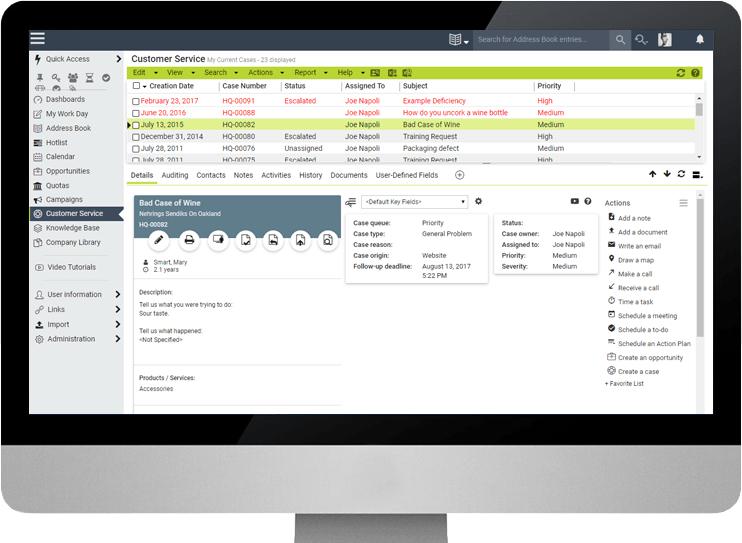
20NINE
Pros:
- Multiple features to boost convenience: Quote templates, e-Signing, Contact forms
- Easy-to-use add-ons including LinkedIn, Office 365, Google Workspace, Microsoft Teams, and WordPress
- Smart activity board that automates deals/orders and manage contact lists
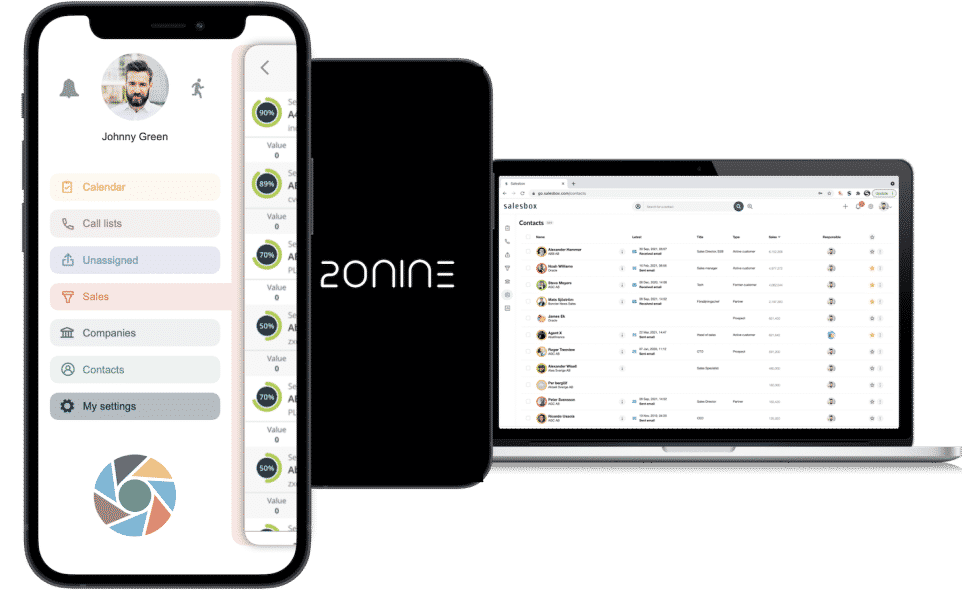
Freshworks CRM
Pros
- Streamlined sales sequences
- Customizable forms
- Helping users build multiple, easy-to-track pipelines
Cons: Too many options and customizations that can be confusing for beginners.
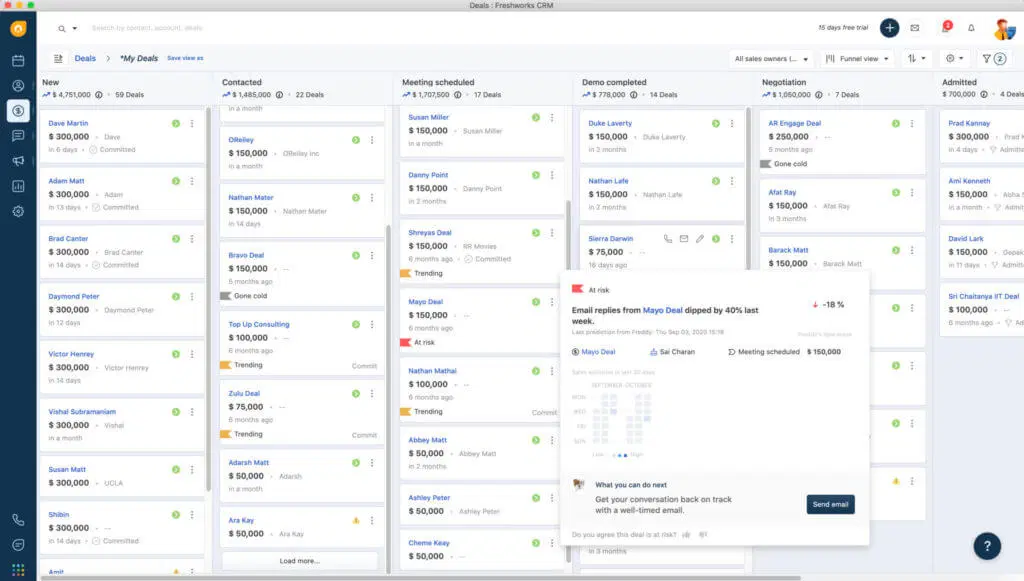
Sage CRM
Pros:
- Affordable and configurable
- Efficient reporting and dashboard capabilities
- Easy integration
Cons: Screen interface needs further improvement
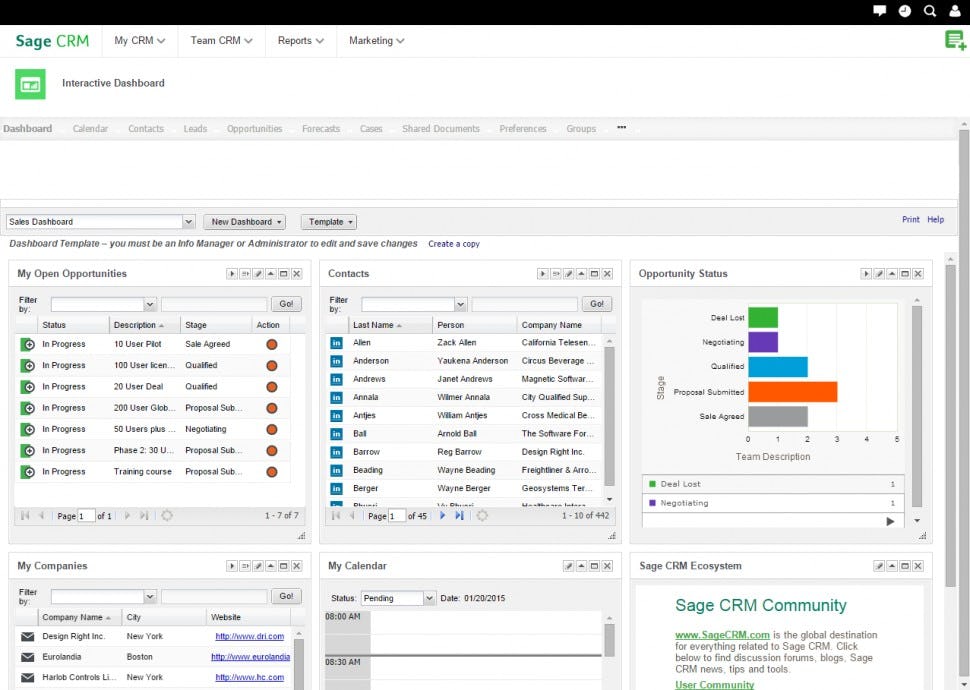
HubSpot CRM
Pros:
- Intelligent monitoring of deal stages and effective follow-up
- Easy-to-use CRM layout
- Large learning resources
Cons:
- Customer support needs to be more helpful and engaging
- The user interface can be confusing, making it a bit challenging to find and update deals

Copper
Pros:
- Clean and easy-to-use interface
- Smart Opportunities Pipeline feature – which allows pipelines to be applicable for multiple purposes apart from sales
Cons: Difficulties in cancellation
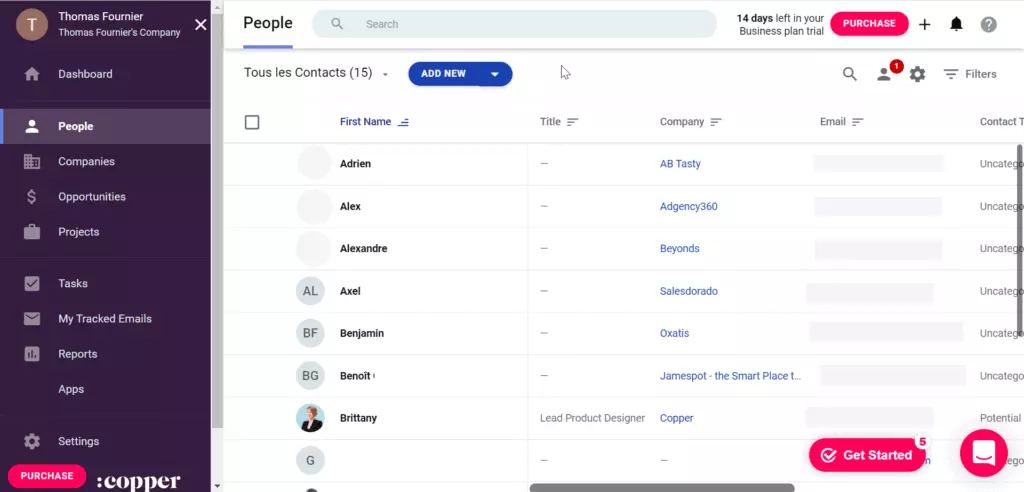
Microsoft Dynamics 365
Pros:
- Smooth and easy integration with Microsoft Outlook
- Facilitating a fast, streamlined sales process
- Providing valuable sales insights and performance
Cons:
- User-friendliness can be improved – as new users may struggle when entering new information into a database.
- The loading speed can be slow if the Internet connection isn’t strong enough.

NetSuite ERP
Pros:
- Effective financial reporting and vendor management
- Easy integration for various business sizes
Cons:
- Data migration can be complicated
- The software can be expensive for small and medium-sized businesses.

Closing thoughts
CRM provides telecommunication companies with a competitive advantage by automating business processes and yielding valuable, actionable insights about their customers. Therefore, these companies can expand their user base, increase revenue, and stand out from other competitors with the right solution.
Are you looking to level up your CRM system?
GEM Corporation’s deep industry knowledge and expertise enabled us to become a trusted vendor for developing high-performing CRM systems for businesses in telecommunications and more.
Connect with our 300+ experts and consultants and let GEM know how we can assist you!
Error: Contact form not found.
